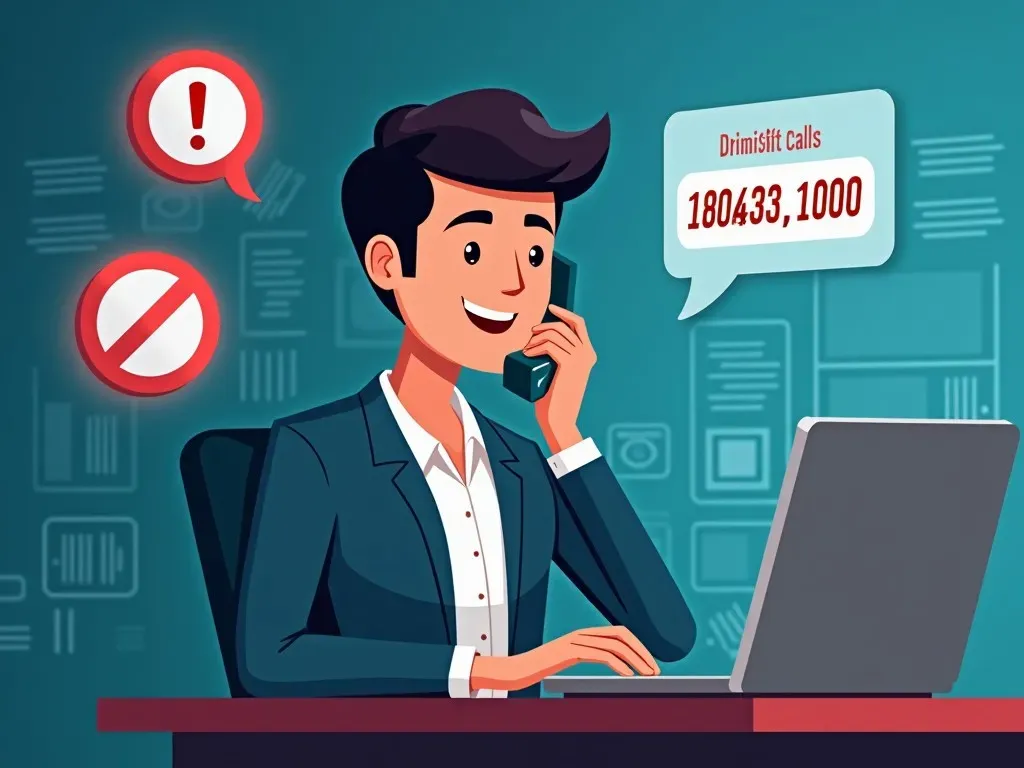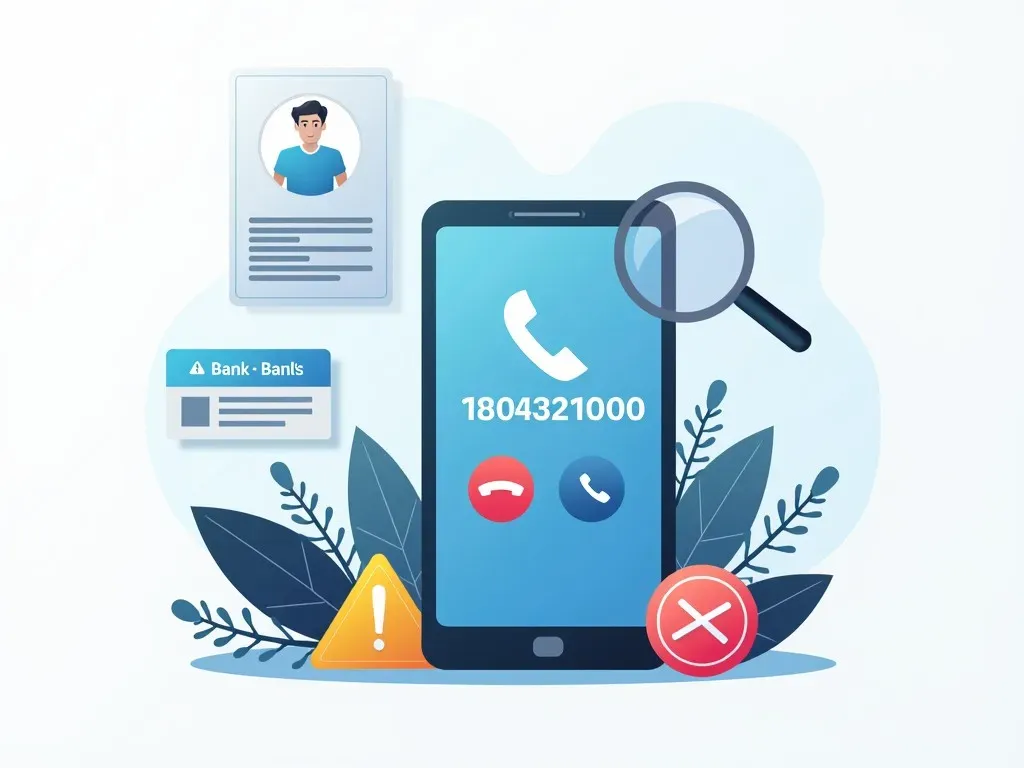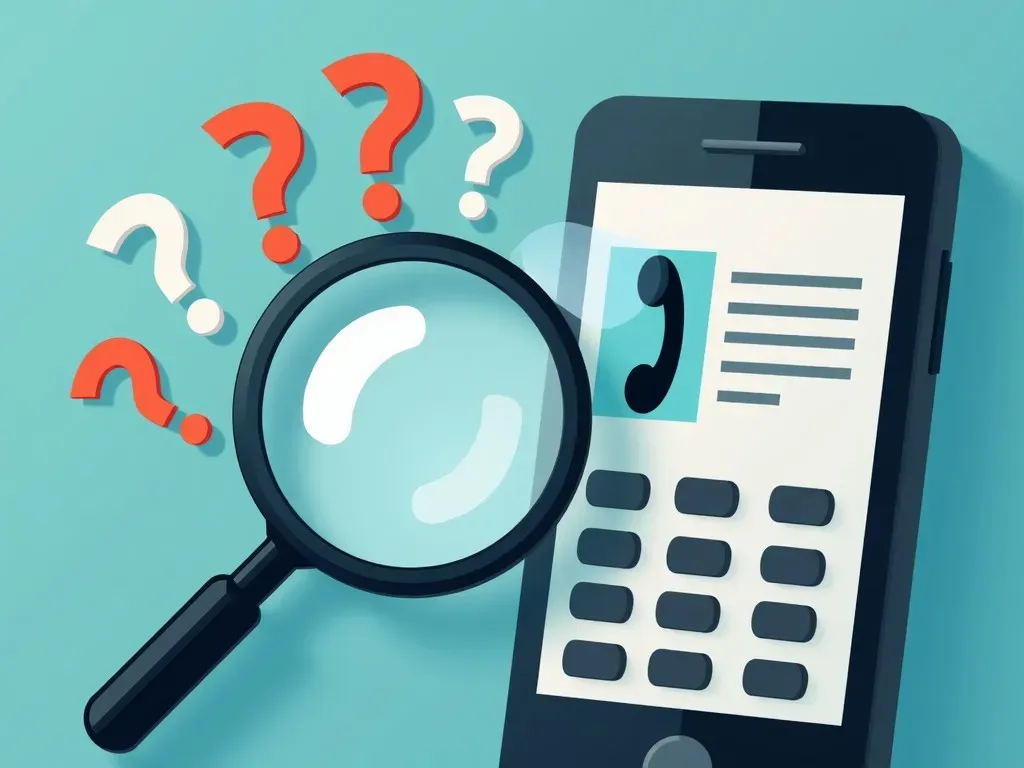Receiving unsolicited calls can be frustrating and concerning, especially when the number in question is 18004321000. This phone number has been associated with questionable practices, leading many recipients to wonder whether it’s genuinely Bank of America or yet another spam call attempting to scam unsuspecting individuals. Understanding how to properly identify these calls, react appropriately, and protect oneself is crucial in this digital age. This article aims to provide a comprehensive guide, offering solutions and developing trust as we navigate this issue together.
Receiving calls from 18004321000 can elicit a range of sentiments, from anxiety over privacy concerns to annoyance at the intrusion. It’s vital to remain informed and vigilant in such situations. The key takeaway here is that knowledge is power. By understanding the nature of the calls that originate from this number and learning how to respond effectively, you can alleviate some of the stress associated with them.

Caller Information Table
| Caller Information | Details |
|---|---|
| Phone Number | 18004321000 |
| Company Name | Bank of America |
| Headquarters | Charlotte, North Carolina |
| Representative | Customer Service Team |
| Established | 1998 |
| Business Activities | Banking, Financial Services, Loans |
| Additional Services | Credit Card Management, Mortgage Loans |
| Customer Service Contact | 800.432.1000 |
| Website | Bank of America |
| Known Issues | Spam warnings and scam alerts |
| Example Reports | Account verification calls, phishing |
For more details, refer to the official Bank of America page on contacting their customer service.
Identifying the Source of 18004321000
When a call from 18004321000 comes through, many individuals are conditioned to view it with skepticism due to its association with spam. It’s essential to determine whether the call is legitimate or a part of an ongoing scam targeting unsuspecting customers.
Bank of America primarily uses this number for customer service inquiries regarding various banking issues, including account management and opening new accounts. However, scammers have started to exploit this number by calling individuals and posing as Bank of America representatives, making it even more challenging to discern genuine communications from spam.
User reactions to this number often vary significantly. Some individuals report receiving calls that seem legitimate but request sensitive information, while others report using this number to resolve actual banking issues without any hiccups. A common thread throughout user experiences is uncertainty—where one person sees a real opportunity for help, another immediately feels wary and defensive.
The feedback surrounding 18004321000 has been overwhelmingly divided. For every glowing report of helpful assistance, there are numerous warnings about phishing attempts. Users often describe moments of panic upon receiving the call, fearing they are being targeted for identity theft or financial fraud.
User Experiences with 18004321000
When analyzing user experiences with 18004321000, it’s apparent that emotions run high. Concern and suspicion are frequent themes, with many users sharing tales of receiving unexpected calls, often accompanied by hesitation regarding how to respond.
Feedback gathered from social media and online forums paints a vivid picture of collective concern. People share their disbelief when asked for personal information, highlighting the methods scammers utilize. It’s not uncommon to see threads filled with testimonials expressing frustration over receiving repeated calls from this number, leading users to feel as though they are under siege from telemarketers or potential fraudsters.
Demographics also play a role in the perception of these calls. Younger individuals may be more adept at identifying spam and are quicker to block or decline such calls. In contrast, older generations might exhibit a greater sense of trust towards calls, especially if they appear to be from recognized companies.
Strategies to Handle Nuisance Calls
If you find yourself on the receiving end of a call from 18004321000, there are several steps you can take to protect yourself.
Step 1: Set Up Call Blocking
It’s advisable to take action before a call even comes through. Familiarize yourself with your smartphone’s blocking features or consider using dedicated apps to filter out unwanted calls. On iPhones, this can be done by going to Settings > Phone > Call Blocking & Identification. For Android devices, you can often find options in the Phone app settings.
Step 2: Respectfully Decline
If you choose to answer the call, remain calm and be respectful. You can say something like, "I’m not comfortable providing personal information over the phone. Can I verify your identity or call you back on a listed number?" This shows assertiveness and sophistication in handling the situation, discouraging potential scammers.
Step 3: Understand Your Rights
Familiarize yourself with laws designed to protect consumers against unsolicited calls. In the U.S., the Telephone Consumer Protection Act (TCPA) regulates telemarketing calls, including those made via auto-dialers. Knowing your rights can empower you to report any suspicious activity.
Staying informed and cautious is your first line of defense against unwanted calls or scams.
Additional Safeguarding Measures
In addition to the strategies mentioned above, there are proactive steps you can take to create a personal barrier against such nuisances.
-
Educate Yourself and Others: Share valid resources regarding common scams and tactics that scammers use to sound legitimate. General awareness can often thwart attempts before they begin.
-
Report Suspicious Calls: If you suspect a call is a scam, report it to relevant authorities in your region. For individuals in the U.S., this may include the Federal Trade Commission (FTC) or the Federal Communications Commission (FCC).
-
Utilize Do Not Call Registries: Register your phone number in the National Do Not Call Registry. This won’t eliminate all unwanted calls, but it may help reduce them.
-
Be Wary of Callback Requests: If a caller asks you to return the call to a different number, proceed with caution. Phishing scams often utilize this tactic to collect personal information or bill you unexpectedly.
-
Regularly Review Bank Statements: Keeping an eye on your financial accounts can help catch fraudulent activities early. If you notice an unusual transaction, take immediate action to secure your account.
In today’s fast-paced digital landscape, unwanted communication can threaten your peace of mind. As we explore the implications of receiving calls from 18004321000, consider the importance of remaining vigilant, informed, and prepared to protect your personal information.
Remember to always question the authenticity of unsolicited calls and rely on the knowledge you’ve gained to make wise decisions. With the right strategies in place, you can confidently navigate these waters without losing your composure or your security.

By employing these approaches, the impact of unwanted calls can be significantly mitigated, leaving you with one less worry to contend with in your day-to-day life. The landscape of communication is ever-evolving, and so must be our responses to protect ourselves from intrusion.


